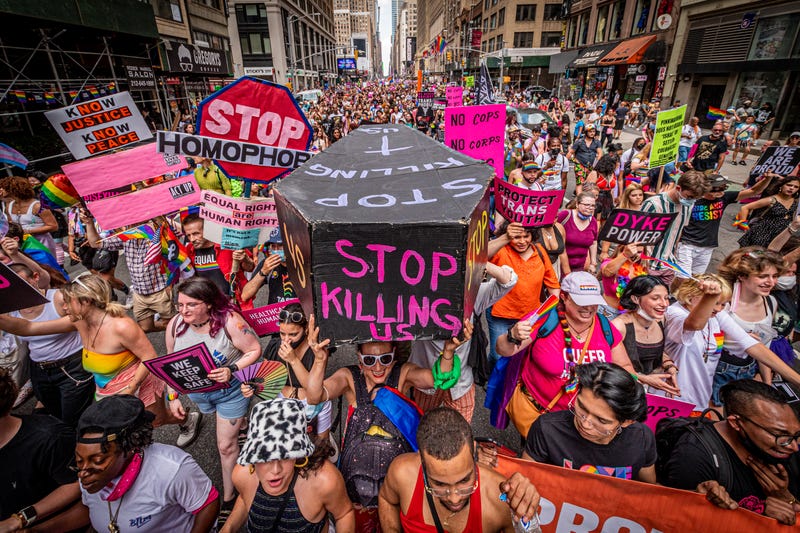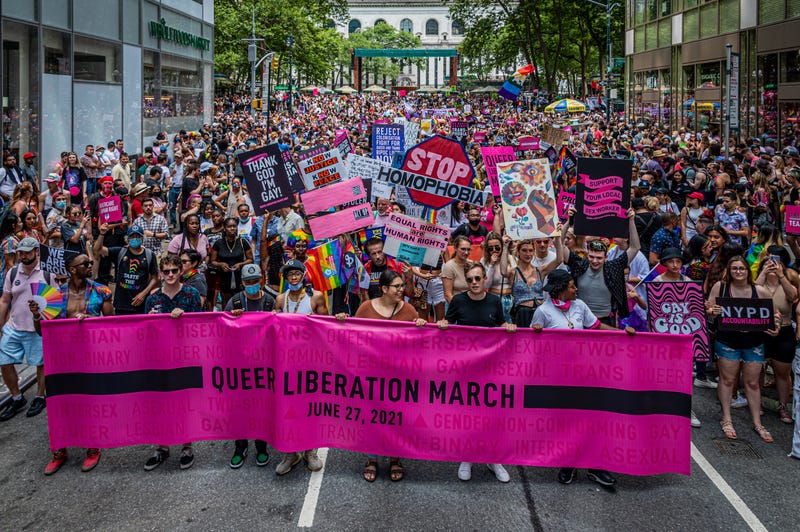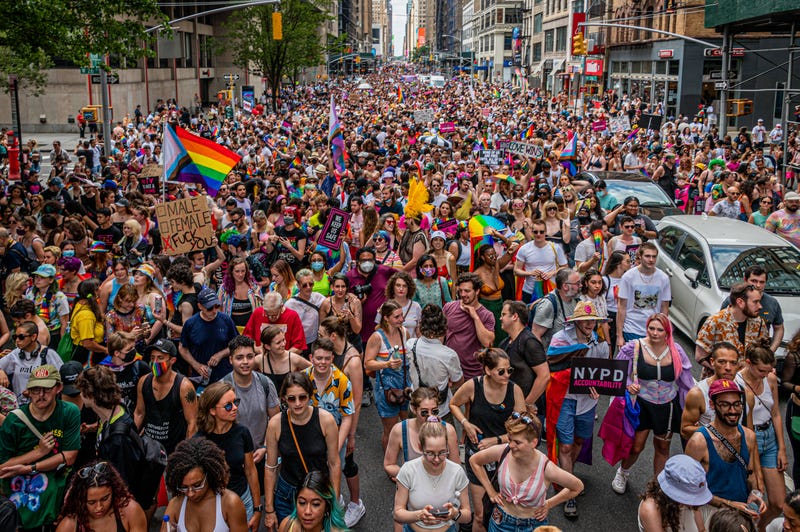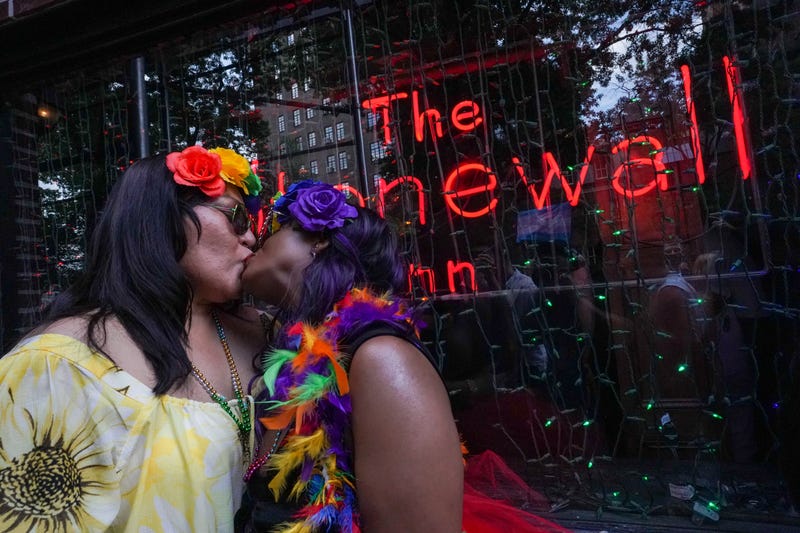NEW YORK (1010 WINS) – This June, many Pride celebrations will take place in-person nationwide for the first time since the pandemic began.


Photo credit Erik McGregor/LightRocket via Getty Images
This comes as many Pride organizations in large cities have been heavily criticized for being too corporate and too large of a police presence. Critics say what was once an uprising against police brutality, racism, homophobia, and transphobia has now become one big expensive party where the most marginalized often feel left out.
Meanwhile, as anti-LGBTQ legislation continues to gain traction in the United States, some activists believe this year's Pride celebration needs to return to its roots and focus on activism.
That's exactly what LGBTQ activist Jay Walker set out to do with the Queer Liberation March. In 2018, with the help of the Reclaim Pride Coalition, he set out to do just that: reclaim pride. The celebration aims to bring back the simplicity, without all the police, politicians, and corporations.

Photo credit Erik McGregor/LightRocket via Getty Images
"If you're a politician, you're allied in, you're aligned with what [the group wants]," Walker says you're still welcome to march. However, he draws the line at the politics and adds, "We don't want you campaigning. We're not going to give you any sort of primacy of place."
While Walker continues to ensure a celebration that focuses on the actual community, NYC Pride's Executive Director Sandra Pérez is making sure that corporations who want to be involved are more aligned with its values.

Photo credit Erik McGregor/LightRocket via Getty Images
She says, "There are one or two [organizations] that we chose not to partner with this year because we didn't feel we could support their position."
She adds New York City's LGBTQ community's expectations "have changed" and that there are "higher standards" as NYC Pride continues to listen to community members.

Photo credit David Dee Delgado/Getty Images
It's not just about ensuring that organizations are LGTBQ-friendly, but being conscious of how those organizations are involved in protecting the rights of the community's more marginalized members.
"A lot of these tiny bits of our lives for specifically queer trans people of color are being slowly chipped away," Dee Tum-Monge says. They are a member of the National LGBTQ Task Force who wants to see the community continue to be uplifted.
They add, "By uplifting our identities, by uplifting our stories, we are able to really tell people that [these problems are] still going on that we are still experiencing discrimination.
In this inaugural episode of It’s OK to Say Gay, listen as hosts Femi Redwood and Anddy Egan-Thorpe explore the future of Pride. Is it on the path to becoming a bigger party or a much bigger protest.




